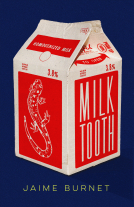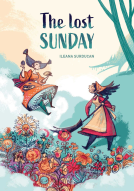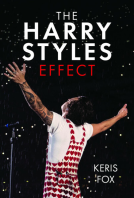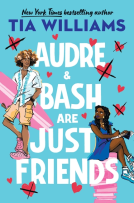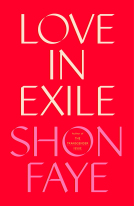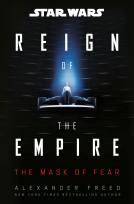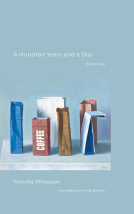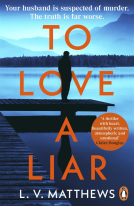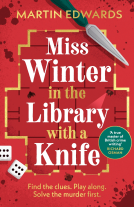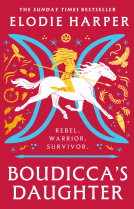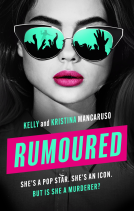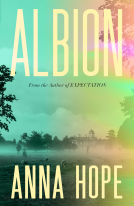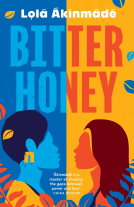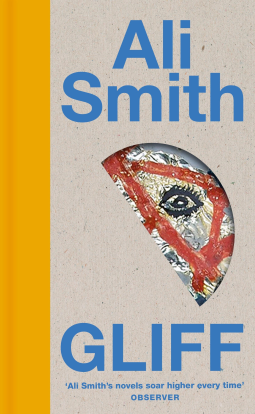
Gliff
by Ali Smith
This title was previously available on NetGalley and is now archived.
Send NetGalley books directly to your Kindle or Kindle app
1
To read on a Kindle or Kindle app, please add kindle@netgalley.com as an approved email address to receive files in your Amazon account. Click here for step-by-step instructions.
2
Also find your Kindle email address within your Amazon account, and enter it here.
Pub Date Oct 31 2024 | Archive Date Oct 30 2024
Talking about this book? Use #Gliff #NetGalley. More hashtag tips!
Description
O brave new world, that has such people in't.
Once upon a time not very far from now, two children come home to find a line of wet red paint encircling the outside of their house.
What does it mean?
It’s a truism of our time that it’ll be the next generation who’ll sort out our increasingly toxic world.
What would that actually be like?
In a state turned hostile, a world of insiders and outsiders, what things of the past can sustain them and what shape can resistance take?
And what’s a horse got to do with any of this?
Gliff is a novel about how we make meaning and how we are made meaningless. With a nod to the traditions of dystopian fiction, a glance at the Kafkaesque, and a new take on the notion of classic, it's a moving and electrifying read, a vital and prescient tale of the versatility and variety deep-rooted in language, in nature and in human nature.
'As always, Ali’s inventiveness and intelligence lit fireworks in my mind. Gliff is an irresistible invitation to rethink and reword our way to a truly brave new world' Michelle de Kretser
LONGLISTED FOR THE 2024 HIGHLAND BOOK PRIZE
Available Editions
| EDITION | Other Format |
| ISBN | 9780241665572 |
| PRICE | £18.99 (GBP) |
| PAGES | 288 |
Available on NetGalley
Featured Reviews
 Viv R, Reviewer
Viv R, Reviewer
Like most of Ali Smith’s books I will need to reread her new novel ‘Gliff’. The novel covers so many themes that I will inevitable have missed a few. For now though I can say that I loved Smiths use of language, I also loved the two main characters. I have yet to decide the significance of the horse. This is a thought provoking novel that serves as a warning to us ll.
I must admit, I was a little wary of this book. The only prior knowledge I have of Smiths work is 'Autumn' which, upon completion, I realised just wasn't a book that was written for me. I was enamoured enough by her writing and stylistic choices in the first of the seasons quarter, that I knew I wanted to try again before writing off her works as something beautifully written, but unable to connect with me. How glad I am to have made that decision.
Gliff is a captivating little book. Enigmatic and aloof, it sets itself in a dystopian future - though survival epic it is not. Like many of her works, Gliff is an ode to humanity, our differences and our similarities. It reads as an essay on identity and meaning, pushing back on prescriptive categorising of individuals and exploring what it means to simply exist.
Gliff follows two children abandoned in this 'uncertain near-future', which we experience through the eyes of Briar, the eldest of the two siblings. Smiths stream of consciousness prose lends itself beautifully to this narrative, at once capturing the naïve wonder of young children exploring the world and how they belong to it, as it belongs to them, whilst also highlighting the nonsense of Adults clamouring to classify and rank human attributes. Accordingly, the book doesn't delve into the intricacies of this 'new world' and it's rules and regulations. 'The State' remains a vague, faceless, omnipresent boogeyman, that lurks at the edge of every page. Largely, the book focuses instead on how these two children and the people around them struggle to find a sense of self in a world that seems eager to deny individuality.
I felt as though in this novel, all of Smith's beautiful wordplay, her enigmatic writing style and astute observation on human behaviour, married beautifully with the plot, which is perhaps what I felt was missing from Autumn. This book had much more substance, more footholds to grip as you get swept along in the meandering narrative. This book, was indeed written for me and I cannot wait to read it's sequel.
If you’re looking for a thought-provoking, immersive read that blends dystopian themes with deeply personal storytelling, Gliff is a must-read. And like me, you’ll likely find yourself counting down the days until Glyph is released, eager to see how the story unfolds.
http://thesecretbookreview.co.uk
I love being invited into the world Ali Smith creates. Even though all her books are quite different to each other, they clearly inhabit the same imagined, almost real world where you think you know how things go until she wrong foots you and you very much don't. Gliff feels like a deep dive into this world. A future dystopia that we can almost touch from the world we inhabit now. Nowhere is explicitly 'here' but it all feels so familiar. Smith explores themes she has long been interested in and some she is increasingly angry about, the mutability of borders and yet the fierce desire to police and regulate them is both explicit in the movements of the characters through this book but also implicit in the shifting identities and genders of some of the characters. This is dystopian but also anchored in folklore and conscious of how and why myths are created. This is the first book in a duology I believe and I cannot wait to find out what happens next.
 Jill W, Educator
Jill W, Educator
Like all of Ali Smith's novels reading this requires an effort of attention, and like all her novels this repays that attention in spades. Set in a dystopian version of society that mirrors the worst of our own, this follows two 'outsiders' living on the margins and marked out as too different.
Many topics are covered in what is a passionate critique of much of contemporary society. Ecology, authoritarianism, the gap between rich and poor, the ubiquity and dangers of technology, rigidity rather than flux and flow.
It is an excellent read and one I will return to. Many thanks to the publisher and Netgalley for a review copy.
Ali Smith, one of the UK's greatest novelists, turning her hand to dystopian fiction in her own unique style... count me in!
Following the brilliance of the seasonal quartet and its companion piece was always going to be a tough act, especially if like me you felt there were masterpieces. Gliff, I am happy to report, doesn't disappoint. There are her usual word plays, narrative techniques and style. Though there is a plot, it is not a novel to be read for plot. It is a novel to revel in, to savour and to be thankful that novelists like Smith continue to publish.
Thank you to Netgalley and the publishers for the ARC.
 Graham F, Reviewer
Graham F, Reviewer
Ali Smith has become I would say something of a literary national treasure with "How To Be Both" and the Seasonal Quartet.
This is her latest novel and has many tropes that will be familiar to those who are like me fans of her writing:
The copious use of wordplay – homonyms, variations on a word, words with multiple meanings (and even here words with letters that start to disappear). Most noticeably and while the book’s blurb tells us correctly that “Gliff” is a “Scottish/northern word for a shock, a fright, a transient moment, a glance or sudden glimpse” – an entire chapter of the book reveals a wide range of alternative meanings with a later chapter then using an Urban Dictionary definition of “a substitute word for any word” (which I think may come from its apparent use in vocabulary aptitude tests in place of “____”)
An innovative publication approach. This time we are told that “Gliff” contains a hidden story which will only emerge in “Glyph”(a signifying mark – as in ‘hieroglyph’) a novel to be published in 2025 – with the two novels said to belong to each other (that idea of what belonging or ownership means being one of the very things this novel explores – in particular in the concept of human/animal relations)
The trademark slightly fey young child – here the narrator Bri(ar)’s younger sister Rose but also Briar themselves.
Literary and artistic references – I have spoken in the past about Smith’s work being something of a literary/art palimpsest (something Smith has included in previous works such as “How to Be Both”). Here literary references include most noticeable Aldous Huxley’s “Brave New World” (although here the text Brave New World is literally erased in the text rather than covered over), Max Frisch’s novella “Man in the Holocene”, the horse (and horse and lion) paintings of the 18th century painter George Stubbs and the fairy tale Briar Rose as well as apparent references to legends of fairies.
Political themes – typically written from a liberal/left wing, green viewpoint. Here Smith rails (perhaps that is an exaggeration given the lightness of her writing) against: smart phones (in what is in many respect a near and sometimes far future dystopian novel - the educators worn by other children seem chillingly little different in function or potential risk and impact from today’s smart watches); exploitative capitalism in both the service industries and in factories; environmental degradation (the most dangerous factories are based around extracting batteries from devices); the vacuum at the heart of rampant and performative consumerism – the real well-off in the society are so inert in their luxury as to be little distinguishable from still-life; industrial-agriculture and much more.
In terms of brief plot the book is set in, as I have said a near-future, country which to me seems a lot like England/Scotland. It opens with Bri (who when asked if they are male or female – and this in a society obsessed with measurement and recording and putting people in boxes, says “yes”) and Rose and their mother’s partner Leif leaving their mother in a luxury hotel where she is surreptitiously covering the work of her ill sister.
But when they return and find their home outlined with red paint (a marking which seems to convey some form of a pariah status of people who are “unverified” Uvs – for either their speaking of taboos or their unwillingness to participate in the digitised surveillance society which Bri’s Mum – a believer in reading and learning – resists) they flee. Shortly after their camper van is also outlined in red and Leif leaves them in a deserted safe house while he attempts to get their mother and avoid being placed in some form of adult retraining centre.
From there they eventually befriend a set of fellow outcasts living in an old school – St Saccobanda’s Sixth Form college (later a passage tells a tale of a horse headed daughter called Saccobanda) but more importantly before that they buy/rescue/steal an abattoir bound horse – a grey gelding (from his size) pony that Rose calls Gliff (although whether you can name a horse is a subject of some discussion - although as an aside the correct answer “Yes, normally a formal registered and informal stable name, but never change the informal name as it is really bad luck” is not given).
The story is effectively told by Bri some years later. Somehow they have gone inside society with an assumed identity and are working as a supervisor in a retraining factory, but an encounter with one of the workers (who claims to have known her sister in an organisation which for me seemed to have a potential link via the Campion flower to Bri’s mother) brings back the past.
Now I have to say that any book with a grey gelding pony and its centre (and its inside cover) is by default worth five stars already but I think the book works for the non-horse lover (although it may be a book which makes you want to shut the book and at least spend some time with a horse, and if so do not resist the temptation) – but so is any book written by Ali Smith.
And this is an intriguing novel if perhaps elusive – there is limited world building and little closure – and I am already looking forward to Glyph to see how much of what is unclear in this novel is revealed.
Readers who liked this book also liked:
Tomoka Shibasaki
General Fiction (Adult), Literary Fiction, Novellas & Short Stories
Kelly and Kristina Mancaruso
General Fiction (Adult), Mystery & Thrillers, Nonfiction (Adult)
